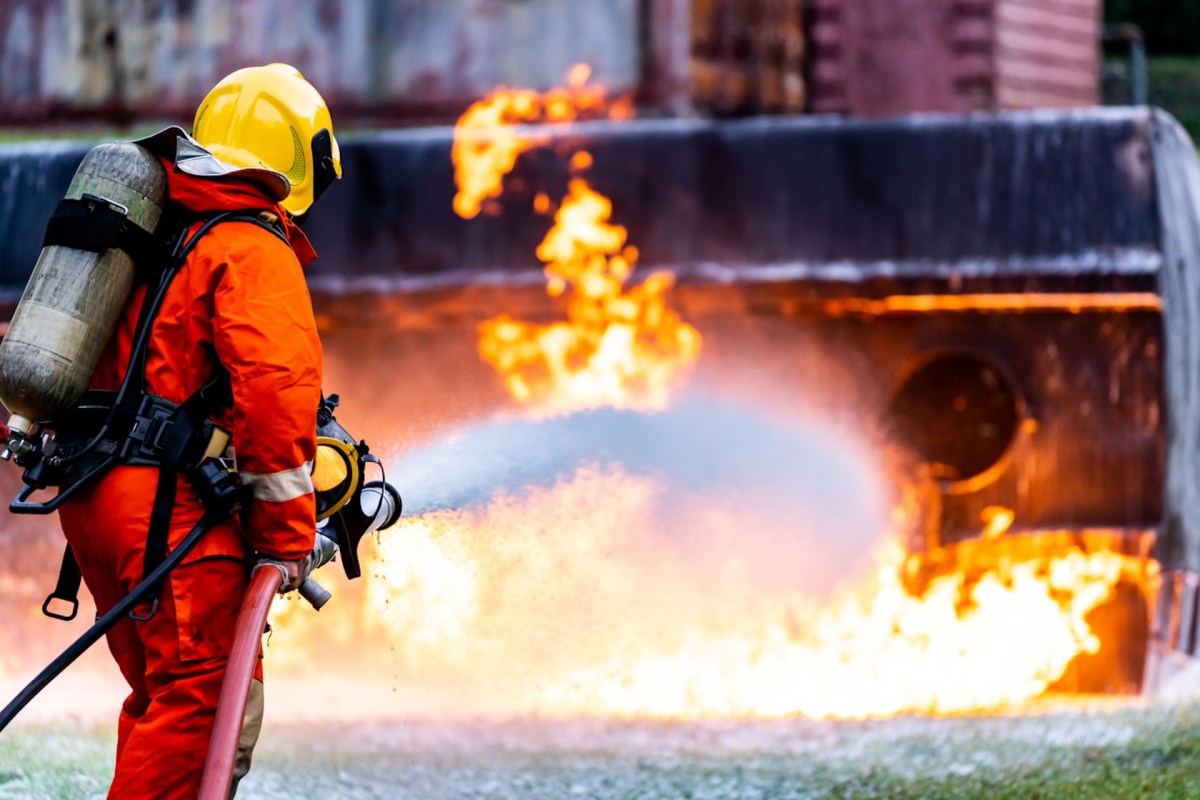A New Jersey bill to ban toxic firefighting foam passed unanimously in December — though there are a few caveats.
After the state Assembly and Senate voted 73-0 and 34-0 last month, Gov. Phil Murphy signed it into law Jan. 8.
In two years, the PFAS-laden substance will be outlawed, NJ Spotlight News reported. Industrial facilities have four years to phase it out, and oil refineries and petroleum terminals have eight years plus the chance to add a pair of two-year waivers. The statute allocates $250,000 to small fire departments to dispose of their foam, which is used to thwart oil and chemical fires.
Per- and polyfluoroalkyl substances, or PFAS, are known as "forever chemicals" because they don't break down in the environment. They have been linked to cancers, pre-eclampsia, and low birth weights, among other health hazards, as NJ Spotlight News pointed out.
"It's about the production of new firefighting foams that do not contain PFAS," bill co-sponsor Sen. Troy Singleton said. "The focus is to make sure that the industry provides us another type of fire suppression tool that can be used."
Another issue is how to get rid of the foam, which already is not being used in training exercises by New Jersey's chemical and oil companies, according to NJ Spotlight News. They do use the foam in emergencies, and at least one alternative might be worse.
"This specialty firefighting foam is necessary to smother that fire and put it out," Chemistry Council of New Jersey secretary Dennis Hart told NJ Spotlight News. "Not doing so could cause a days-long release of chemicals into the air and/or chain reaction of new fires."
The president of the Professional Firefighters Association of New Jersey, Matthew Caliente, was against the waiver loopholes for refineries.
"We have to get rid of this stuff. Our [firefighters'] cancer rate has gone through the roof," he said. "We should try to start getting away from these chemicals as soon as possible."
NJ Spotlight News reported that most local fire departments had gotten rid of the foam or did not use what they had and that the Department of Defense had agreed to stop using it by the end of 2024. It is particularly problematic around military bases and airports because it infiltrates groundwater.
One example is Chicago, where PFAS contaminated the environments of O'Hare and Midway airports. The DOD is leading a $39 billion nationwide cleanup of the foam.
NJ Spotlight News reported the Garden State — with "its long history of heavy industry" — has been a leader in taking action against PFAS contamination, becoming one of the first states to establish limits for PFAS in drinking water.
"No one is disputing the science," Environment New Jersey director Doug O'Malley said. "There's full acknowledgement that PFAS is a toxic chemical, and we need to phase it out."
Join our free newsletter for cool news and actionable info that makes it easy to help yourself while helping the planet.









